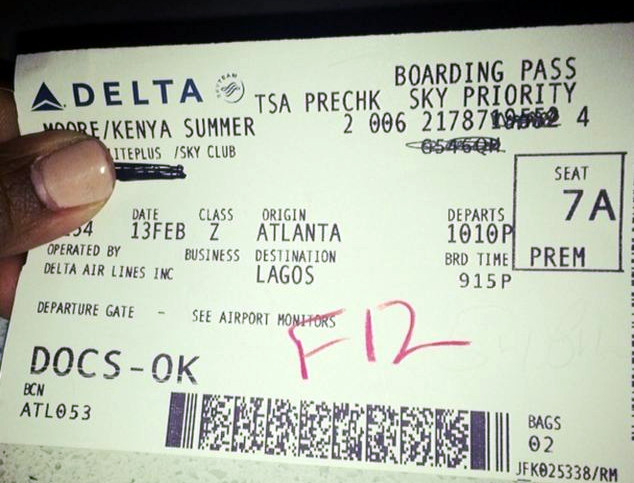Daily Watch – Airline ticket buyers move abroad, Doing business in Nigeria tougher
3rd May 2016

- According to the CBN’s economic report, Nigeria’s economy recorded a decline of $7.95 billion in foreign exchange inflows in the last quarter of 2015. The Q3 2015 figure was $27.34 billion. The regulator blamed the development on the decline in receipts from both the CBN and autonomous sources. For instance, oil sector receipts, which accounted for 19.7 percent of the total foreign exchange inflow, stood at $3.99 billion, compared with $6.05 billion in Q3. The report read in part, “Provisional data on aggregate foreign exchange inflow through the economy indicated that the total inflow was $20.29 billion. This represented a decline of 25.8 percent and 45.2 percent below the levels in the preceding quarter and the corresponding period of 2014, respectively. The development was driven by the fall in receipts from both the CBN and autonomous sources. In terms of sectoral utilisation of foreign exchange, the CBN said the invisible sector took about 40.6 percent of total foreign exchange disbursed in the fourth quarter of 2015. This was followed by the industrial sector (21.8 percent), minerals and oil sector (19.7 percent), manufactured products (9.1 percent), food products (6.1 percent), transport sector (1.8 percent), and agricultural products (0.9 percent).
- As the scarcity of American dollars continues to affect operations in the Nigerian aviation industry, travel agencies are now collaborating with their counterparts in China, United States of America and Europe to buy flight tickets for intending international travellers from the country. In the last year, over 25 foreign airlines flying into Nigeria have been unable to repatriate over
N300 billion in ticket sales proceeds to their home countries, as the CBN continues to ration foreign exchange to commercial banks for sale to users. Ironically, buying the tickets from partner travel agencies overseas made them a little bit cheaper than those issued in Nigeria. This development is coming a few weeks after Delta Airlines and United Airlines, the two American carriers flying into Nigeria, stopped ticket sales in the country. The US airlines said their tickets would be sold in Nigeria only by travel agencies that could sell them in American dollars. - The management of Eko Electricity Distribution Company has announced that beginning from May 3, there will be power rationing in Lekki, Ikoyi, Victoria Island and some parts of Ajah. EKEDC’s spokesman, Godwin Idemudia said that the rationing is to enable the TCN to upgrade both Line 1 and Line 2 of Ajah-Alagbon transmission line from 132kv to 330kv. Idemudia said that during the upgrade operation which would last between three to four weeks, the Lekki transmission injection sub-station which served those areas would be completely shut down.
- According to the World Bank Group’s ‘Doing Business Report’, it is harder to do business in Nigeria now than it was in 2015. In 2015, Nigeria ranked 170 of 189 countries, with a distance to frontier or ease of doing business score of 47.33, against Singapore’s 88.27 and Eritrea’s 33.16. In the 2016 version of the report, Nigeria climbed one rung of the ladder to the 169 position, but its ease of doing business score fell to 44.69.